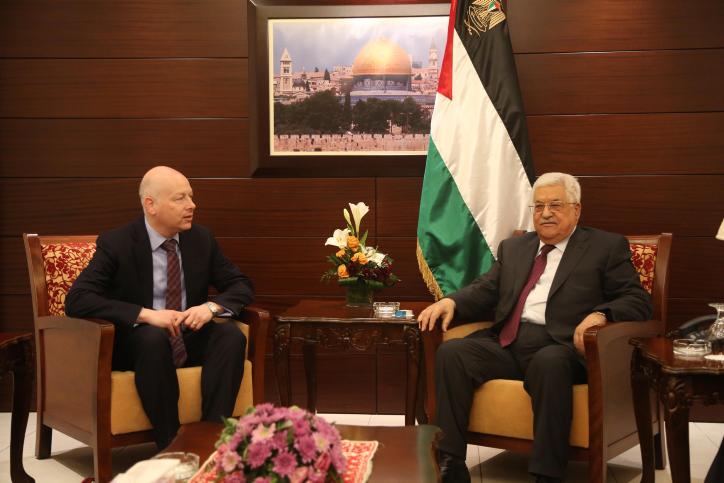Tasked by U.S. President Donald Trump to help reach the “deal of the century,” Jason Greenblatt, who serves as one of Trump’s top Middle East envoys, has a herculean task before him: to help negotiate the peace plan between the Israelis and the Palestinians.
Along with Trump’s son-in-law and senior adviser Jared Kushner, Greenblatt—whose official title is assistant to the president and special representative for international negotiations—has been the face of the Trump administration’s efforts to roll out a comprehensive plan for Mideast peace. He has traveled numerous times to the region over the past 18 months, often meeting with top officials from Israel and the Arab world to gauge the situation.
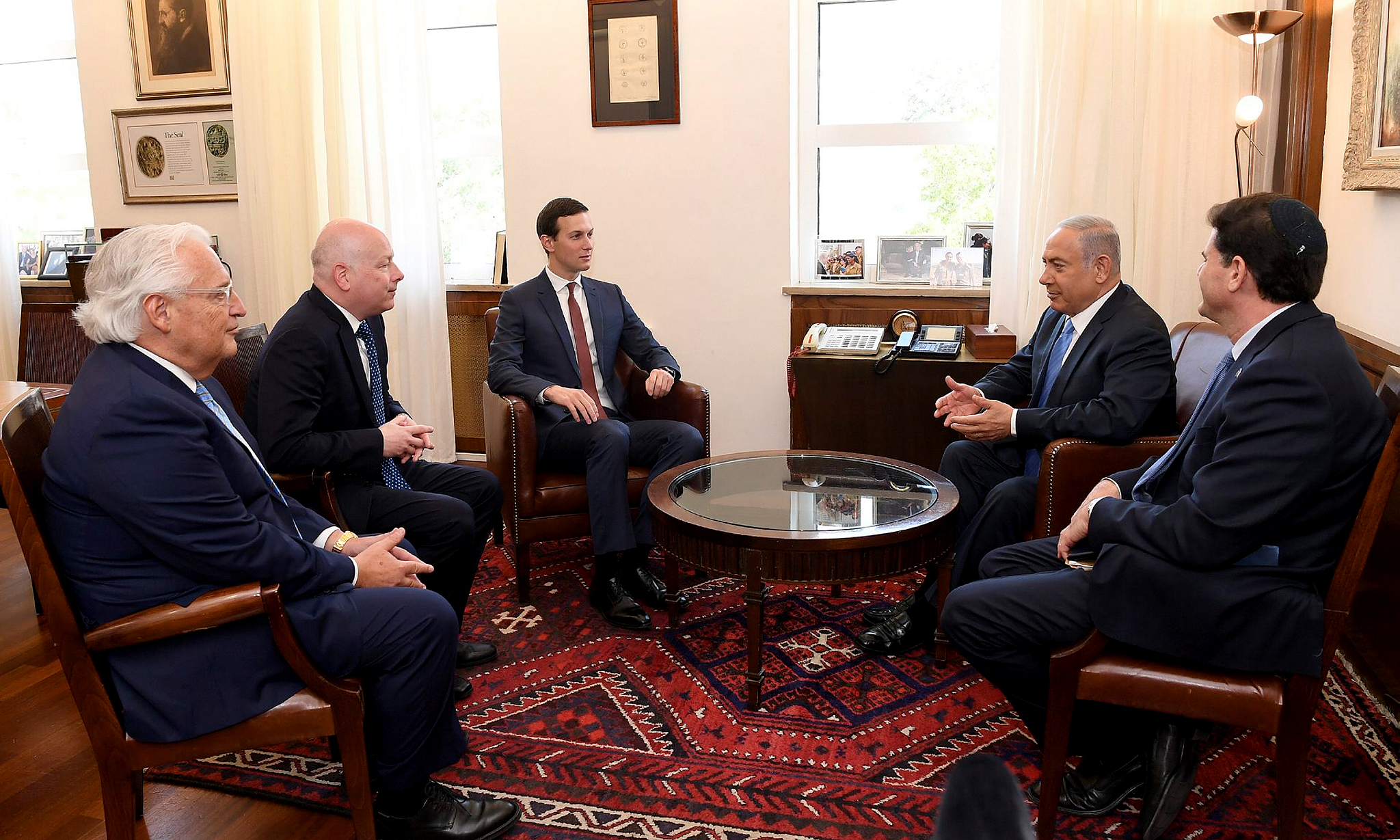
Ahead of Rosh Hashanah, Greenblatt speaks with JNS reporter Josh Hasten about current bonds with Israeli Prime Minister Benjamin Netanyahu and Israel, the rocky relationship with Palestinian Authority leader Mahmoud Abbas, other regional powers at play, and the complex and uncertain prospects for peace.
Q: How do you view the overall relationship at this point between the United States and Israel under the current Trump administration?
A: I think that the relationship between the United States and Israel has never been stronger, and I don’t think we’ve ever had a president more supportive of the State of Israel. And I think that it’s clear that the support is returned by Israelis, who have clearly expressed their appreciation to President [Donald] Trump for his policies relating to Israel. He’s done something no other president had the courage to do. He recognized the reality that Jerusalem is and always will be Israel’s capital. And he finally moved the United States embassy to Jerusalem, where it always belonged.
Probably the best way I can end this answer to your question is by quoting a friend of mine who everybody in Israel knows well and does a terrific job here in Washington, D.C., representing the State of Israel, Ambassador Ron Dermer. [He] recently said in a speech at a Christians United for Israel [CUFI] event and I quote, “There has never been a U.S. administration more supportive of Israel than the Trump administration. Frankly, it’s not even close,” he said.
Q: Without getting into specific details, what makes this attempt at peace between Israel and the Palestinians fundamentally different than previous attempts?
A: Well, first of all, let me thank you for not asking for specifics. You are unique in starting your question that way. I usually have to start the interview by saying, “I’m not going to give you any details,” so I appreciate that very much.
I think our plan begins with reality. It recognizes the history of the conflict of course, but [other plans] were always relying on tired notions of what it should be. Instead, it focuses on what it could be. Our plan isn’t just a two-page term sheet; it’s an extensive document that we’ve developed that explains how we think the conflict can be resolved. It lays out each issue and proposed solutions very clearly so both sides can understand beyond an aspirational term sheet what the solutions really are and whether they are going to be willing to live with those proposed solutions. It’s the result of extensive consultation with Israelis, Palestinians from before the Jerusalem announcement because at the moment Palestinian leadership is not talking to us—much to their detriment, I would add. It’s also after extensive conversation with regional leaders and other stakeholders. All of their questions and concerns have helped us forge a plan into a deal which we think is realistic, fair, and equally important, implementable.
Q: Turning attention to Syria, with a much more serious conflict continuing to rage in that country, why is America focusing efforts on resolving a relatively calm conflict in the West Bank, in which there is security cooperation right now between Israelis and Palestinians?
A: Jared [Kusher], David [Friedman] and I have been charged by the president to try and achieve a comprehensive peace deal between Israelis and Palestinians. That’s our mandate. And I understand that serious people may be skeptical about whether or not we can reach a peace agreement—a comprehensive peace agreement—and I think that’s very understandable. But I think there are very few people in the world who would oppose an attempt at finding a solution, and while it’s true that there are other conflicts in the region—and as I’ve said many times, this is certainly not the core conflict in the region, as others have said—we think that there are unique circumstances now that warrant an attempt at trying to see whether or not we can do this. President Trump, as devoted and dedicated to the State of Israel and the Jewish people as he is, he’s also dedicated to trying to help the Palestinian people, and the way we can marry those two ideas is by trying to reach a comprehensive peace agreement.
Q: In the same vein—and we have seen this in recent weeks—the Trump administration has announced a series of cuts to the Palestinian Authority and funding for UNRWA. What is the goal by making those cuts, and do you think this will help urge the Palestinians to come back to the negotiating table?
A: I think there are a couple of things I have to unpack in that question. The first is that earlier this year, the president directed a review of U.S. assistance to the Palestinian Authority, as well as to the West Bank and Gaza, to ensure that the funds were being spent in accordance with U.S. national interests, and also providing value to the U.S. taxpayer. Per that review and at the direction of the president, we’re going to be—as was announced a few weeks ago—redirecting more than $200 million of fiscal year 2017 economic support funds that was originally planned for programs in the West Bank and Gaza. Instead, those are going to go to higher priority projects elsewhere. And I want to make clear that that decision is separate from, but also consistent with, Congress’ purpose in passing the Taylor Force Act, which restricts assistance to the Palestinian Authority unless the Palestinian Authority ends the abhorrent practice of payments to imprisoned terrorists and the families of terrorists.
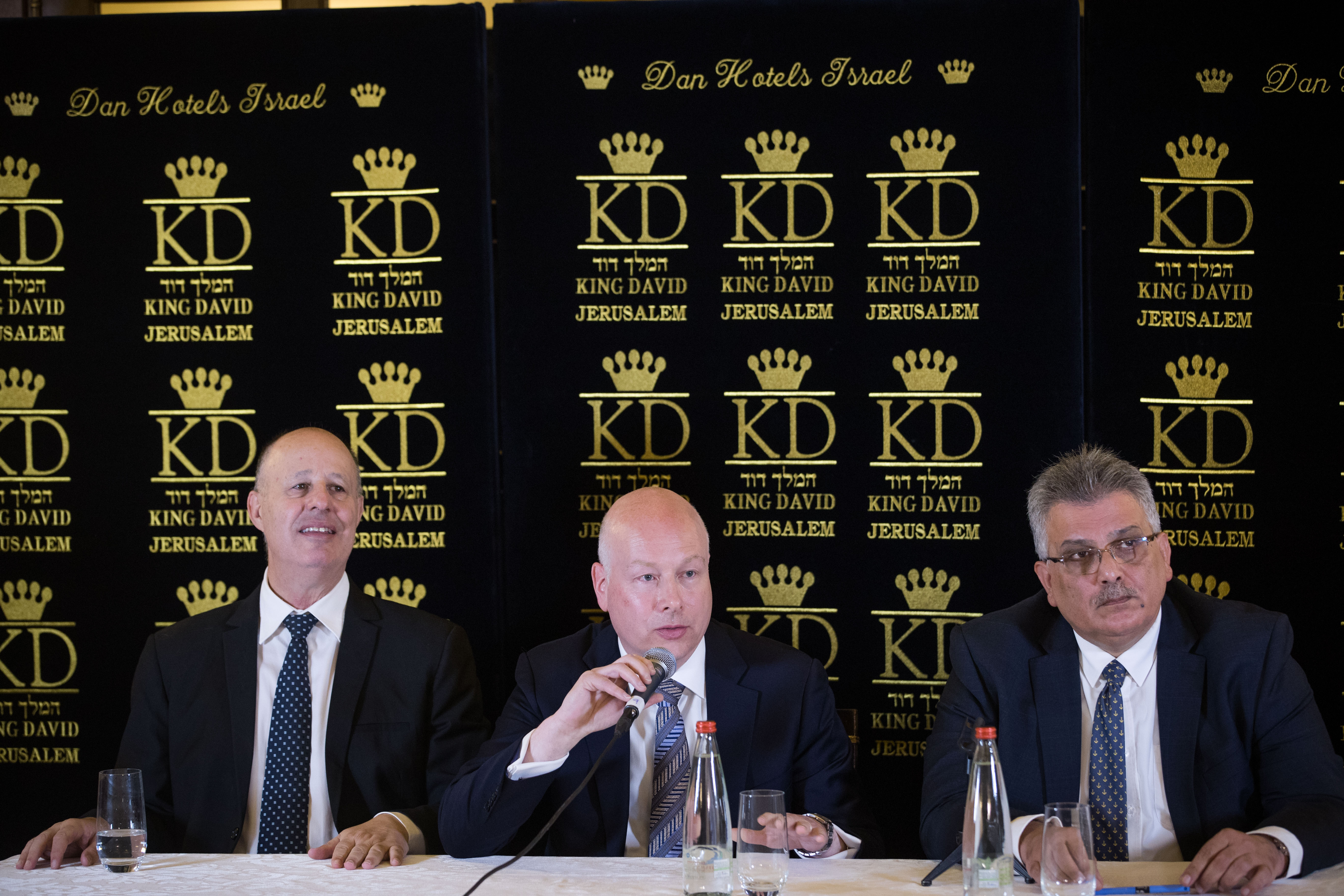
Let’s move over now to UNRWA [United Nations Relief and Works Agency for Palestine Refugees in the Near East]. Because as you are probably are aware last week, we made an announcement regarding UNRWA, and there are a few points I want to make about UNRWA. First of all, it’s been clear for years that UNRWA’s model of operations is completely unsustainable. And we’ve said repeatedly that UNRWA needs to seek out new voluntary funding streams. They need to increase their burden-sharing among donors, and they also have to find ways to reduce their expenditures. A little bit of progress has been made, but as the current situation demonstrates, not nearly enough progress.
We also made it clear back in January, when we made our $60 million contribution, that the U.S. is no longer willing to shoulder a disproportionate share of UNRWA’s costs while other donors lag behind, and they don’t match their rhetoric with real-world action. Our $60 million contribution that we made back in January still makes the United States one of UNRWA’s most generous donors for 2018. I’ll point out in praise that Jordan, Egypt and Sweden, and other stakeholders, have encouraged better burden-sharing, and others have stepped forward. But at the end of the day, the international community did not prove itself willing to fix this problem. UNRWA is nearly out of funds, and it’s time in our view to have everybody acknowledge that their business operation is a failing model. It’s tied to an endlessly and exponentially expanding community of beneficiaries; it’s unsustainable, it operates in permanent crisis mode, and we have decided to no longer commit to funding this irremediably flawed operation.
We also believed that Palestinians deserved better than this crisis-driven model. Wherever they live, they deserve to plan for their future and the future of their children. We’re mindful of the impact on innocent Palestinians, including schoolchildren. And we’re ready to engage with other governments in the region and elsewhere to see if we can transition UNRWA’s services to other governments or international organizations; we welcome participation in that conversation. But I want to stress again that we view UNRWA’s model as irredeemably flawed.
Q: In your Aug. 9 CNN op-ed, “Israelis and Palestinians must unite against shared threat,” you call Hamas “an Islamic fundamentalist terror organization” that seeks to destroy Israel, while at the same time you call on the Palestinians in Gaza to choose peace. How is it possible to put the Palestinians in Gaza on a path towards peace as long as Hamas continues to rule over their lives while neglecting their interests?
A: I was a little bit surprised when I started on this file how little attention was paid to Hamas in Gaza. Most people spend a lot of time just talking about catchwords and phrases and slogans that have been used on this file for years without focusing [on the fact] that at the end of the day, if we don’t resolve the situation in Gaza, it will be an obstacle on the road to peace. So separate from the humanitarian issue that I feel terrible about—what the Palestinians in Gaza are going through. Hamas itself is an obstacle on the road to peace. It’s not a secret that the Palestinians of Gaza are hostage to Hamas, and they have suffered terribly under Hamas’s iron-fist rule. It’s also not a secret in my opinion that Hamas bears the ultimate responsibility for that suffering, much to the detriment of the Palestinians in Gaza. Many countries will not admit that out loud, although they certainly tell me that in private meetings. But the Palestinians of Gaza are not monolithic. And there are Palestinians in Gaza who would rather seek peace, instead of watching violent protests and rockets and burning kites with swastikas adorned on them. And we’re just going to have to work very hard to reach that population, and I think we can and we have to. There is no way around that. We must do that.
Q: While we’re on the topic of Hamas, is there a major risk if Israel decides to give up important tracts of land in a peace deal, and afterwards, the P.A.—as was the case in Gaza—becomes replaced by Hamas? Is there a huge risk that they would then not live up to their side of the bargain?
A: Without getting into the specific details, I will tell you this very, very clearly: This administration is absolutely committed to Israel’s security, and we very much believe that the plan that we developed clearly reflects that. Ultimately, both sides are going to have to be comfortable with the plan. When I say “be comfortable,” among the things that they’ll have to be comfortable with is [that] Israel is going to have to be comfortable that what we put forth in the plan does not put Israel at risk. And we think we’ve devised a plan that takes all of Israel’s security issues—and they are many, as you know—and we take that into account. When we reveal the plan, the security experts are going to digest it, and they are either going to confirm that we did the right job and took everything into account, or if we didn’t, we’re going to hear their comments and concerns, as we will listen to all comments and concerns about it. But we will not put forth a plan or endorse a plan that doesn’t meet all of Israel’s security issues because they are of extreme importance to us.
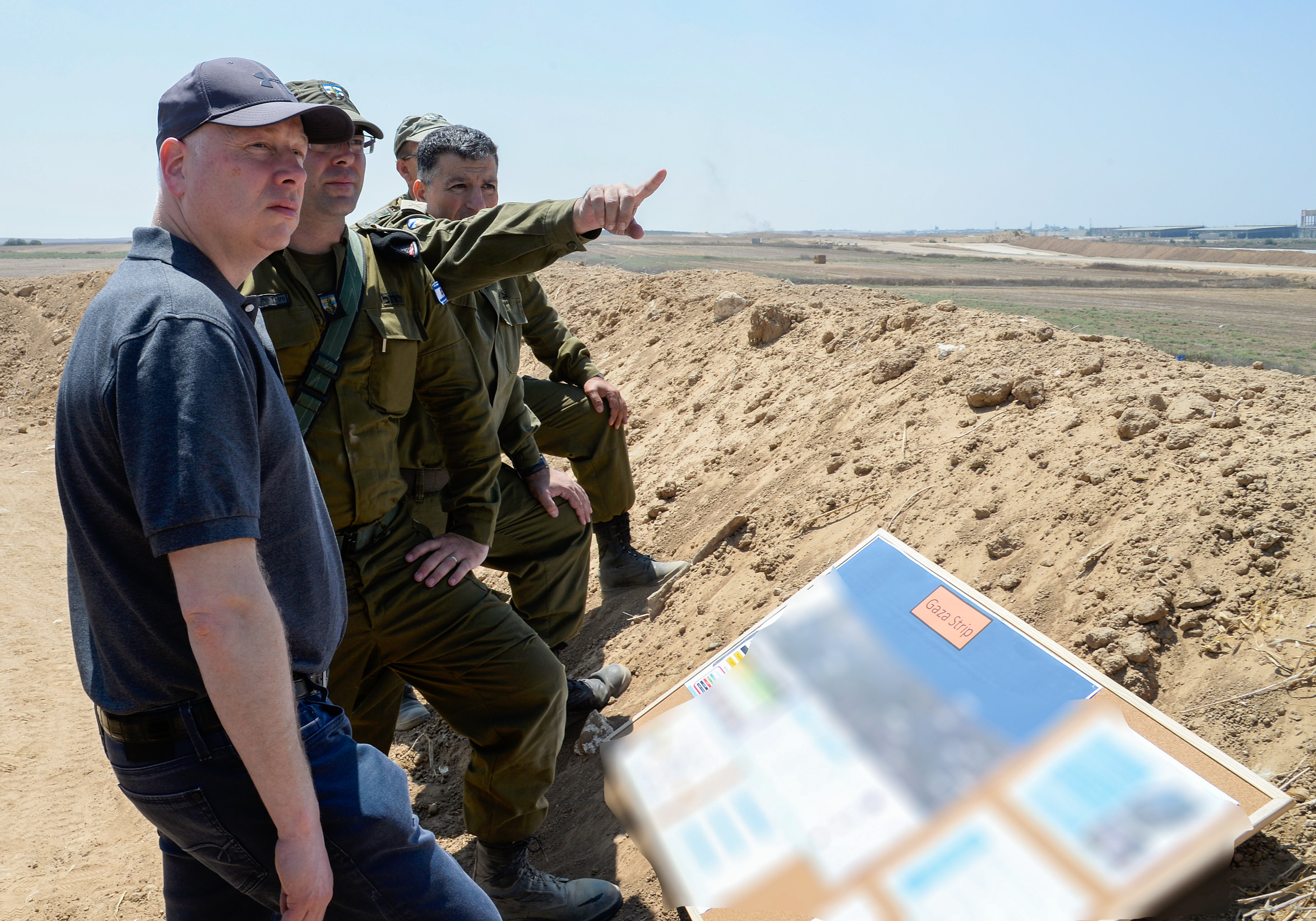
Israel’s security issues—and they are many, as you know—and we take that into account. When we reveal the plan, the security experts are going to digest it, and they are either going to confirm that we did the right job and took everything into account, or if we didn’t, we’re going to hear their comments and concerns, as we will listen to all comments and concerns about it. But we will not put forth a plan or endorse a plan that doesn’t meet all of Israel’s security issues because they are of extreme importance to us.
Q: At a rally in Charleston, W.V., on Aug. 21, President Trump said that Israel would pay a “higher price” in future talks with the Palestinians as a result of the U.S. recognition of Jerusalem as Israel’s capital and moving the embassy. The president added that the Palestinians “will get something very good, because it’s their turn next . . . ” What is that “higher price,” and what is in store for the Palestinians, especially at this juncture as their leadership is threatening to thwart any U.S.-led peace plan?
A: We think what we have developed is the best opportunity for a fair deal for both sides. There are parts of the plan Israel is going to love, and there are parts that Israel is not going to like. And the same is true for the Palestinians. So what we want people to ask themselves after reading the plan is: Will we be better off with this plan or continuing without it? We think both sides are going to gain a lot more than they give. But to answer your question specifically—and I didn’t discuss the specific comment with President Trump—but I believe that he meant that if we’re lucky enough to have both sides negotiating our plan in good faith, we hope that Israel will take into account President Trump’s good-faith efforts in advancing the goal of peace. His recognition of Jerusalem though, and the moving of the embassy, was not intended to exact a price out of Israel. There is no particular demand on Israel in exchange for those decisions.
Q: When 31-year-old Israeli Yotam Ovadia was murdered this summer just outside of Jerusalem by a Palestinian terrorist, you asked the following on Twitter: “When will President Abbas and the Palestinian leaders condemn the violence?” A few days later, you defended Ambassador Friedman for visiting Ovadia’s widow after he was condemned by the P.A. for doing so. You added that it was “not surprising” that no condemnation over the attack itself had been issued. What does that say to you about America’s ability to work with the current P.A. leadership?
A: I think David [Friedman] and my tweets speak for themselves, and I think that what happened was outrageous. However, I will point out that we are ready to work with the current P.A. leadership if the P.A. leadership is ready to lead. That does mean condemning terror; it means fully engaging with our peace plan in good faith. I’ll remind everybody that no one loses more than the Palestinian people when their leadership condemns a plan that they’ve never seen. No one loses more than them when the leadership falsely claims that they have killed a plan that hasn’t even seen the light of day yet. And no one loses more than them if their leadership will refuse to engage on the peace plan when it is revealed.
Q: That said, since Oslo—and here we are, 25 years later—the P.A. has systematically incited its population through state media, schools and textbooks, public speeches, the glorification of “martyrs” and the sponsorship of terrorism, including the P.A.’s “pay to slay” policy that Abbas says he will continue to implement, despite bills passed both in the United States and Israel to prevent it. What makes you think that the Palestinian people are prepared to enter into a peace accord?
A: We do believe that many Palestinians want to live in peace, and they want to see their lives improved. They wanted to see their lives improved, by the way, even before a peace accord would be reached, but certainly after a peace accord. If we’re wrong, then we are going to fail as others have failed before us. But I would say that we owe it to Israelis and Palestinians to try our utmost to see if we can finally achieve a peace deal. And I firmly believe under today’s circumstances that we find ourselves in, for so many reasons, that history will judge us if we don’t try.
Q: Can Mahmoud Abbas one day become a partner for peace?
A: I certainly hope that President Abbas chooses to engage with the peace plan, and I hope he decides to lead his people to a better and brighter future, which is what this plan could bring the people. I think that working with the Trump administration is President Abbas’s best opportunity to possibly achieve many of the goals that he has set out for himself and his people. And without engaging on the peace plan, there is not only not going to be any such opportunities, but the Palestinian people will fall further and further behind. Moreover, the continued condemnation of the peace plan is going to yield no solution whatsoever to the Palestinian people. So our hope is that, yes, he will realize when he sees the plan that he should become a partner for peace.
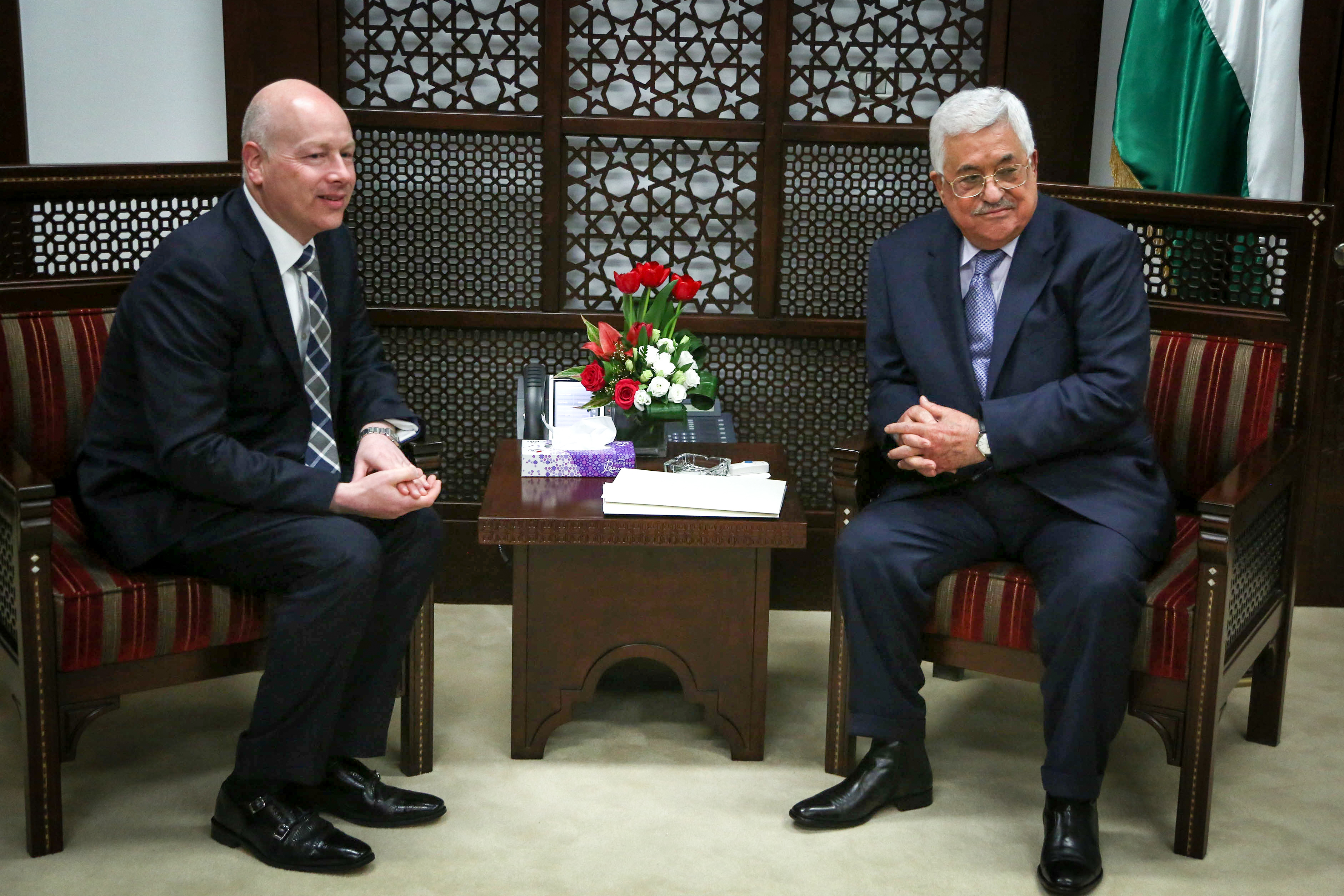
Q: Taking the Middle East into account when talking about a future peace plan, how does Israel’s new status as a regional economic, technological and military superpower change Israel’s bargaining position in any peace negotiations?
A: I wouldn’t describe it as bargaining positions. What I see relevant is Israel’s success over the last 70 years, which has been nothing short of amazing. And I think it should stand as an example to Palestinians and the region of what they could achieve if their leaders engage on the peace plan and let us help them help themselves. And we have spent a great deal of time not just on the political aspects of the peace plan, but also on the economic portions of the peace plan. It’s important for us to point out that the peace agreement itself is not the end of the road; it’s the days after and the years after. We have spent a great deal of time figuring out what happens post-peace agreement. And obviously, a big component of that is the economy, and I think that the Palestinians can see what Israel has accomplished, and I hope that they want that for themselves as well. That’s not to say that we are pushing an “economic peace”; we’re certainly not, and we understand the Palestinians will not accept an “economic peace.” So I wanted to be clear that our plan is not an economic peace; it’s a comprehensive peace, but of course, it focuses on the economy because that’s so important to a successful peace agreement.
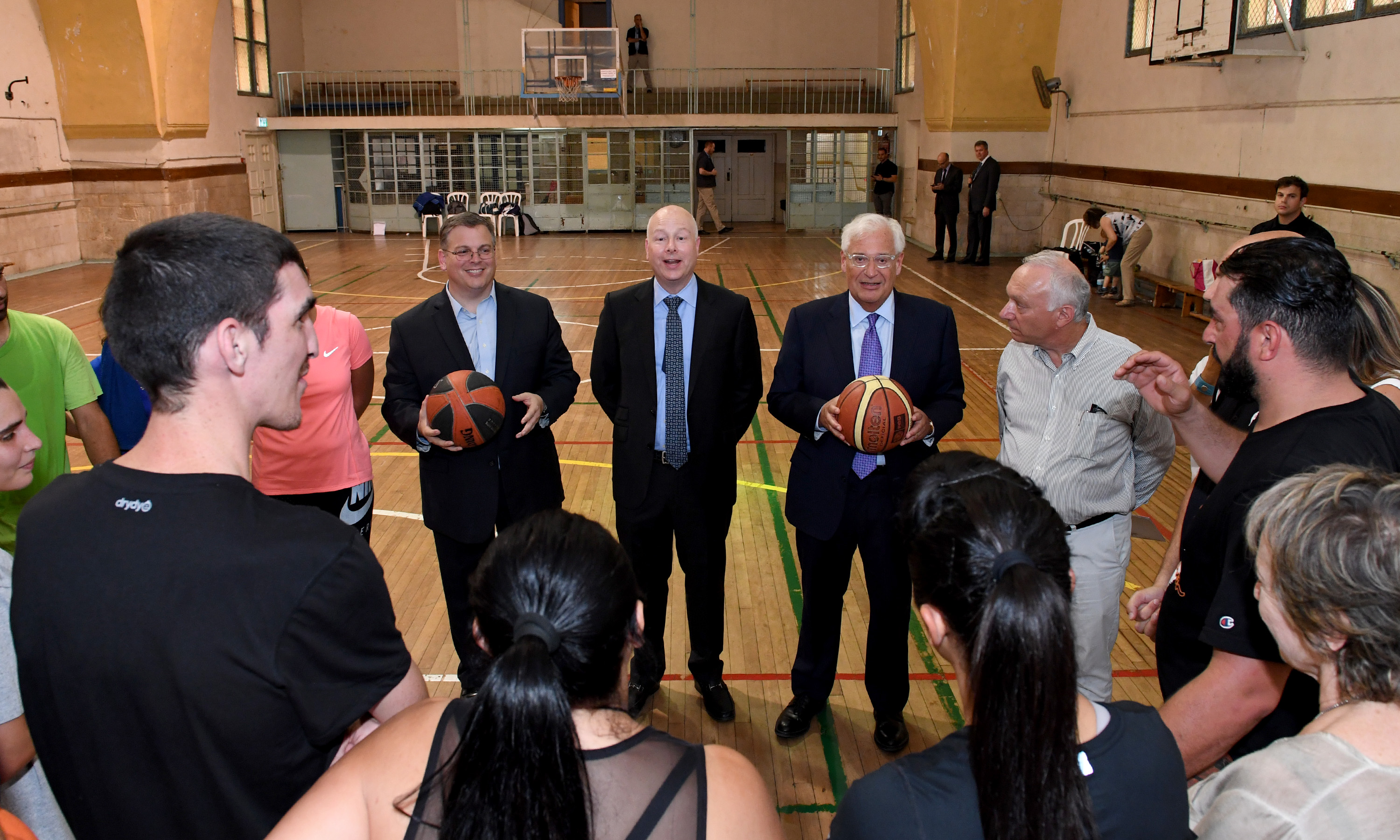
Q: Will any peace deal need approval from regional partners, including Saudi Arabia, Egypt and Jordan? Is that something that is needed to achieve the comprehensive plan you are describing?
A: Approval is a strong word. I think that the only real path forward to a peace deal is direct negotiations between Israelis and Palestinians. I do think that the regional partners are key players in our efforts, and we have done extensive consultations throughout the region and throughout our process. We’re also hopeful that we can count on their support, and I use the word ”support” rather than “approval,” so they can help the Palestinians achieve a better future. I think they are essential; I think they will be helpful. I hope they will be helpful, but I would not use the word “approval.”
I just want to add one more point—the advice that I would give everybody, Israelis, Palestinians, everybody else who is interested in the file—is wait until the plan is released, and when it’s released, please read it cover to cover and judge the plan on its merits—not on rumors, not on speculation, not on news reports, but on what’s in it. Really read it. We hope that once Israelis and Palestinians in the region and everybody else who wants to help will read it, that Israelis and Palestinians are going to have the courage to engage in the plan and lead their people to a better future.


























